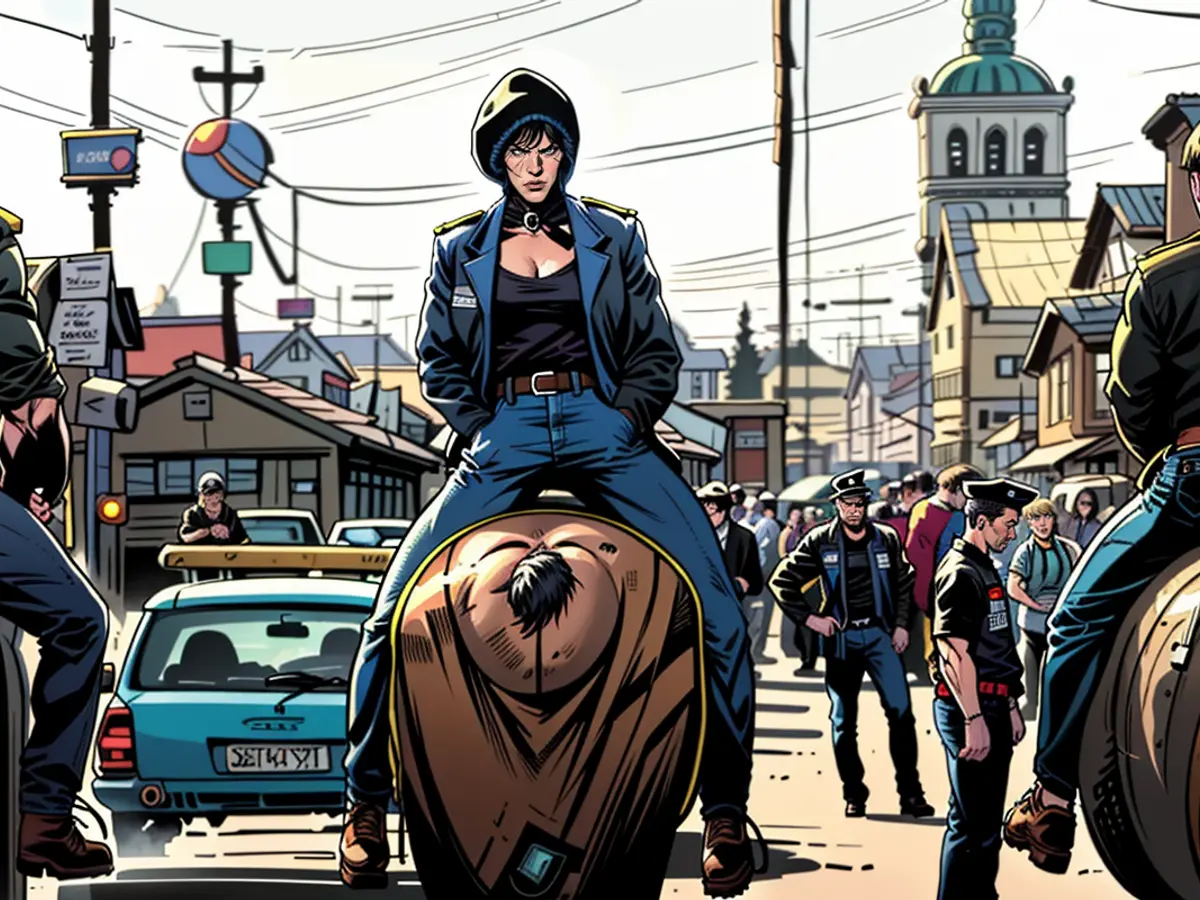- Public festival safety guidelines in Bavaria currently undergoing reassessment
Following the knife attack in Solingen, worries are rising in various locations: Are large gatherings still safe? Throughout Bavaria, there are folk festivals and autumn events happening, and in about three weeks, Oktoberfest will commence in Munich.
Authorities are on alert and are reviewing their security strategies for large-scale events, such as in Passau, Munich, or Regensburg. The German Police Union (DPolG) in Bavaria anticipates a substantial increase in workload – with officers already working at their limits.
Stricter controls at folk festivals
In Regensburg, the city and security forces are on high alert, according to a spokeswoman, referring to the Herbstdult that continues until September 8. There are checkpoints at the entrances, police are patrolling the festival grounds, and security personnel are monitoring the tents. Since the attack on the Berlin Christmas market at Breitscheidplatz, Regensburg has been dealing with the abstract threat of various attack forms and has evaluated and adapted its strategies.
The Passau Dult is set to open its doors on September 6 for ten days. The city takes security concerns seriously, it was stated. Currently, they are examining whether and to what extent the security strategy needs to be adjusted. The city spokesman mentioned, for example, increasing the number of security personnel, additional bag checks, or patrols.
Munich is also intensely addressing this issue, as Oktoberfest is scheduled to start there on September 21, attracting millions of people from all over the world every year. Mayor Dieter Reiter (SPD) has already announced stricter controls.
In Abensberg, special attention is being given to the Gillamoos fair, which begins on Thursday and ends on Monday with a breakfast event featuring various political dignitaries. There is already an extensive security plan and a strong police presence, as reported by the Kehlheim police station. Continuous situation assessment enables the early detection of dangerous situations.
Banned knives on Augsburg Plärrer
Knives are already prohibited as part of the security plan on the Augsburg Plärrer. Entrance controls check for them – and have been doing so for years, according to the city. In addition, there are bollards at all entrances and concrete barriers to prevent vehicle attacks. "The current close-meshed situation meetings ensure that necessary adjustments can also be made at short notice," said Augsburg's economic affairs representative Wolfgang Hübschle.
Importance of diverse attack scenarios
"It's essential that such security plans already include various attack scenarios," said the chairman of the DPolG in Bavaria, Jürgen Köhnlein. He praised the concept for the Wiesn as "very sophisticated." Unlike in Solingen, there are numerous video cameras on the Theresienwiese, but also in the tents. There is also a separate Wiesn police station with specially trained deployment forces.
A lot of work for the police. "The security situation in Germany has significantly deteriorated, and the number of protective and security-relevant events has significantly increased," said Köhnlein. The subjective sense of security among the population has also decreased. "Our colleagues are already long out of their deployment boots and are increasingly exposed to attacks."
To better address attacks like those in Solingen, Köhnlein called for a detailed situational analysis of knife attacks to implement targeted preventive measures. "Politics must address and correct the fundamental problem of a failed migration and integration policy, limit immigration, and facilitate additional deportations," the union representative explained. "Citizens of this country, as well as our police officers who uphold the law and are also citizens, deserve security."
According to Köhnlein, the police are almost constantly in deployment situations. He cited examples such as the security conference in Munich, the UEFA European Football Championship, high-risk games from the Bundesliga to the regional league, all spring, autumn, folk, and wine festivals, as well as large concerts, especially in Munich. "Without private security companies, such events could no longer be held." "We're wearing down our deployment forces, leading to an increase in sick leave."
In light of the heightened security concerns following the knife attack in Solingen, the city of Munich, known for hosting the renowned Oktoberfest, has announced stricter controls for the event starting on September 21. The festivities attract millions of visitors from around the world annually.
Amid the increasing workload for security personnel, Jürgen Köhnlein, the chairman of the DPolG in Bavaria, emphasized the importance of diverse attack scenarios in security plans. He praised the sophistication of the concept for the Wiesn, as it incorporates numerous video cameras, a separate police station, and specially trained deployment forces.








